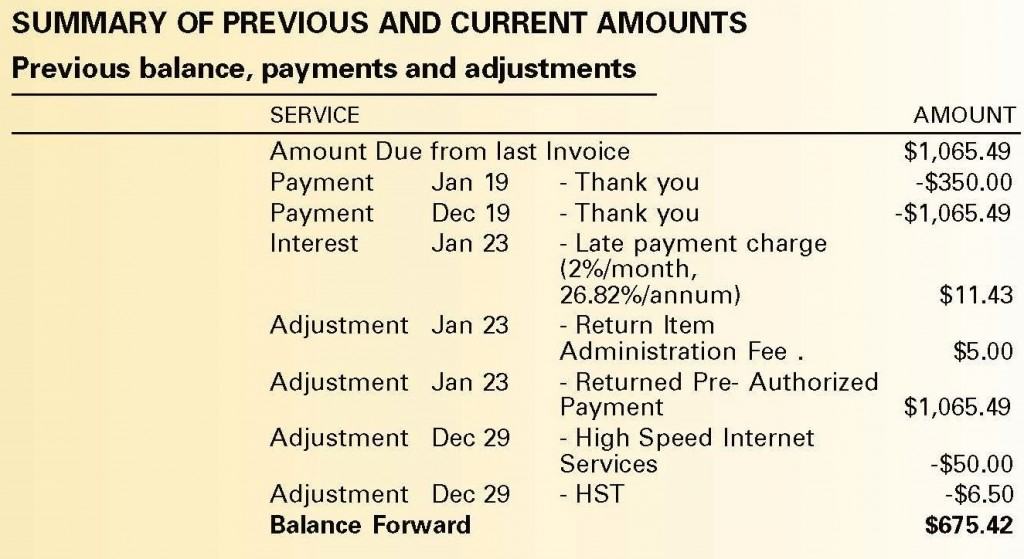 Ever wonder why cell phone companies are upset about new regulations that would warn customers when they are about to face mobile usage overlimit or roaming fees? Rogers Communications explains why in their latest quarterly results:
Ever wonder why cell phone companies are upset about new regulations that would warn customers when they are about to face mobile usage overlimit or roaming fees? Rogers Communications explains why in their latest quarterly results:
Nadir Mohamed, CEO:
There was, however, a sequential slowing in the wireless data revenue growth rate, and that’s primarily attributable to new outbound data roaming plans that we put in place. With these new plans, we put in place automated customer notification mechanisms that had a net effect of slowing usage versus stimulating it to the degree that we expected it to. We’re in the process of modifying how these plans and notifications work, which I expect will have a more stimulative effect and help restore the trajectory we had for wireless data growth.
In simpler terms, Rogers began notifying their customers through text messaging when they were about to start data roaming — the most expensive data usage around, incurred when you leave Rogers’ service area and roam on another provider’s network. With Canadians visiting the United States and elsewhere, using a cell phone while traveling can get expensive fast. Rogers created new roaming data plans for customers likely to need the service while abroad. But their roaming data plans come at steep prices:
U.S. Data Passes
Day Pass: $5 for 2MB
Day Pass: $10 for 10MB
Day Pass: $20 for 40MB
Week Pass: $25 for 15MB
Week Pass: $50 for 60MB
Week Pass: $100 for 250MB
The warnings that customers were about to incur even higher a-la-carte roaming fees or start to consume their day or weekly data pass had the unintended, but highly predictable effect of getting people to think carefully about using data while roaming.
While good for consumers, that is bad for Rogers’ bottom line, so the company’s formerly frank warnings to customers are “being modified” to help the company “stimulate” revenue and restore the predicted revenue growth from the high-priced roaming plans.
“We tried to create real transparency about when people and how people could get on data packages as they went overseas,” admits Robert Bruce, president of Rogers Communications Division. “We put in a fair number of reminders to let people know that they were on à la carte pricing, and we think that these dissuaded significantly customers from using it and possibly created some confusion along the way.”
Rogers Cable customers are also finding some of the company’s newest innovations a challenge to their monthly broadband usage allowances, among the lowest in Canada:
- Rogers Remote TV Manager: Enables cable subscribers to search programming and manage PVR recordings anytime on any device;
- Rogers Live TV. This service lets cable customers stream live TV channels on their tablets and watch shows anywhere they are in the home;
- Rogers On Demand TV app on Microsoft’s Xbox 360 LIVE platform, bringing Rogers On Demand TV to the gaming console;
- A refresh of the digital cable user interface, improving ease of use for the Whole Home PVR and a better program guide and search function.
In the long term, Rogers is moving towards an IP-based delivery system for its video programming, allowing the company to deliver video across different platforms more efficiently. As Rogers converts the rest of its cable systems to digital cable, it is opening up new broadband capacity — a critical part of the company’s revenues.
Rogers admits it uses data caps to drive revenue. By moving customers into higher usage, more expensive tiers, Rogers is able to drive revenue upwards as well.
“As customers continue every quarter, in and out, to consume more and more and spend more and more time on the Internet, we think it’s both a great opportunity for us and a welcome addition to the product offering from a customer perspective,” Bruce said.


 Subscribe
Subscribe










